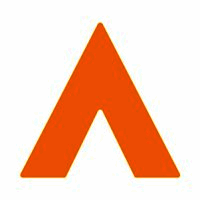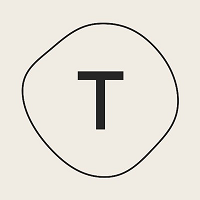Description

Alchemer

Typeform
Comprehensive Overview: Alchemer vs Typeform
Alchemer and Typeform Overview
a) Primary Functions and Target Markets
Alchemer:
- Primary Functions: Alchemer, formerly known as SurveyGizmo, is a sophisticated survey platform designed to collect and analyze customer feedback. It provides robust survey tools with customizable options to create forms, surveys, polls, and quizzes. Features include advanced reporting, data analysis, and integration capabilities with other enterprise solutions.
- Target Markets: Alchemer primarily targets business enterprises looking for advanced data collection and customer feedback solutions. It is suitable for market researchers, marketing teams, HR departments, and customer experience professionals who require in-depth insights from their surveys. It is also used in sectors like healthcare, finance, and education due to its compliance with data protection regulations.
Typeform:
- Primary Functions: Typeform is a user-friendly, conversational data collection tool designed to create engaging and interactive forms, surveys, quizzes, and polls. Its focus is on aesthetics and user experience, providing a visually appealing interface that promotes higher response rates.
- Target Markets: Typeform is geared towards businesses and individuals looking for an easy-to-use survey tool that emphasizes design and interactivity. It appeals to marketers, small businesses, content creators, and educators who want to gather feedback or conduct market research while maintaining a strong brand presence.
b) Market Share and User Base
-
Alchemer: With an emphasis on enterprise-level solutions, Alchemer has carved a niche in specialized markets requiring complex data integrations and advanced analytics. While not as widely adopted as some consumer-focused survey tools, it holds a respectable share among enterprise users who need customizable, robust feedback systems.
-
Typeform: Typeform enjoys broader popularity, especially among SMEs and individual users, due to its approachable interface and design-focused functionality. Although more limited in enterprise-level capabilities compared to Alchemer, its ease of use has contributed to a larger user base globally, especially in creative and digital marketing sectors.
c) Key Differentiating Factors
-
User Experience:
- Alchemer is more focused on advanced functionalities and providing detailed analytics, making it ideal for users who need complex survey configurations and integrations.
- Typeform offers an intuitive and interactive user interface that prioritizes user engagement and accessibility, which is beneficial for those who need to maintain brand consistency and appeal in their data collection.
-
Customization and Integration:
- Alchemer stands out for its depth of customization options and ability to integrate with various third-party applications, allowing users to tailor surveys to specific business needs and workflows.
- Typeform provides a more simplified set of integration options but excels in terms of ease of setup and use, often preferred by those who want quick deployment without extensive technical adjustments.
-
Design and Presentation:
- Alchemer focuses on utility and functionality over design aesthetics, prioritizing the functionality that enterprises need to handle detailed data securely.
- Typeform is renowned for its sleek, conversational form of data collection, offering more design templates and customization for a visually appealing output that maximizes respondent engagement.
-
Compliance and Security:
- Both platforms offer compliance with major data protection standards, but Alchemer often provides more rigorous features suited for industries with strict regulatory requirements, such as enhanced security features for sensitive data handling.
In summary, while both Alchemer and Typeform serve the fundamental purpose of survey creation and data collection, their approaches and strengths cater to different user needs. Alchemer is the preferable choice for enterprises needing robust, adaptable survey tools with deep integrations, while Typeform attracts users who prioritize user experience and form aesthetics.
Contact Info

Year founded :
2006
+1 (800) 609-6480
Not Available
United States
http://www.linkedin.com/company/alchemer

Year founded :
2012
Not Available
Not Available
Spain
Not Available
Feature Similarity Breakdown: Alchemer, Typeform
Alchemer (formerly SurveyGizmo) and Typeform are both popular survey and form-building tools, and they share a number of features while also exhibiting notable differences. Here's a breakdown of their feature similarities and differences:
a) Core Features in Common
-
Survey Creation:
- Both platforms offer user-friendly tools to create surveys and forms with customizable templates.
-
Question Types:
- They support a variety of question types, including multiple-choice, open-ended, rating scales, and more.
-
Conditional Logic:
- Both provide conditional logic to tailor questions based on previous responses, enhancing the user's journey through the survey.
-
Data Export:
- Users can export collected data to formats like CSV, Excel, and integrate with analytics tools.
-
Integrations:
- Both tools integrate with popular third-party tools like Zapier, Slack, and Google Sheets to streamline workflows.
-
Responsive Design:
- Surveys created in either platform are optimized for mobile devices, ensuring a smooth experience across different devices.
-
Collaboration Features:
- Teams can work together with collaboration features that allow for shared access and editing.
-
Customization and Branding:
- Users can customize the look and feel of the survey or form to align with branding guidelines.
b) User Interface Comparison
-
Alchemer:
- Alchemer's interface is quite comprehensive and might initially seem more complex to new users. It focuses on providing advanced users with in-depth customization and data management options. The interface is designed to cater to users who might need more granular control over survey behavior and design.
-
Typeform:
- Typeform is well-known for its elegant and minimalist interface. It promotes an interactive form experience, where questions are presented one at a time, enhancing user engagement. The interface is often praised for its clean, intuitive design that’s easy for users to navigate, making it appealing to those who prioritize aesthetics and ease of use.
c) Unique Features
-
Alchemer:
- Advanced Survey Logic: Alchemer offers more granular control over survey logic, which is particularly useful for complex survey flows.
- Enterprise Solutions: It provides tailored solutions for enterprise needs, focusing on data security and compliance features such as GDPR and HIPAA.
- Panel Integration: Alchemer offers integration with survey panels to easily reach specific target audiences.
-
Typeform:
- Conversational Interface: Typeform is known for its unique "conversational" style of surveys which deliver questions in a chat-like format, making the process more engaging for respondents.
- Integrative Widgets: Typeform allows embedding different widgets (like payments or media) directly within forms, often used to create interactive lead generation forms.
- Focus on User Experience: With features like personalized quizzes and forms that feel like conversations, Typeform stands out in user engagement.
Both Alchemer and Typeform have their strengths, with Alchemer focusing more on flexibility and depth for complex survey needs, while Typeform stands out for its engaging, user-friendly design.
Features

Not Available

Not Available
Best Fit Use Cases: Alchemer, Typeform
Alchemer and Typeform are both popular platforms for creating surveys and forms, but they cater to different needs and audiences. Here's a detailed look at their best-fit use cases:
Alchemer
a) Best Fit for Businesses or Projects:
- Enterprise & Large Organizations: Alchemer is well-suited for large organizations that require advanced features such as robust data analysis, sophisticated survey designs, and integration capabilities with other enterprise systems (e.g., CRM, ERP).
- Market Research Companies: Alchemer's advanced survey and data collection tools make it ideal for market research firms that need detailed data analytics, complex question logic, and versatile reporting.
- Government and Non-Profits: Its comprehensive suite of security and compliance features makes Alchemer a good option for government agencies and non-profits that need to ensure high standards for data privacy and security.
- Healthcare: With its compliance with standards like HIPAA, Alchemer serves healthcare providers or organizations needing secure patient feedback systems.
d) Industry Verticals and Company Sizes:
- Large Enterprises: Alchemer's scalability and integration options cater to the needs of large corporations, providing powerful tools for employee feedback, customer experience management, and strategic marketing insights.
- Education: Colleges and universities can use Alchemer for course evaluations, student satisfaction surveys, and institutional research.
- Retail and Consumer Services: Businesses can leverage Alchemer for customer feedback, product research, and service improvement surveys.
Typeform
b) Preferred Scenarios:
- Startups and Small Businesses: Typeform is excellent for startups and small businesses due to its intuitive and visually appealing design interface, making form creation quick and cost-effective.
- Marketing and Creative Agencies: Because of its focus on design and user experience, Typeform is preferred by marketing and creative agencies that need engaging ways to collect feedback, run quizzes, or gather client input.
- Event Planning: Its user-friendly platform makes it ideal for event planners needing to create registration forms or post-event surveys with ease.
- Educational Initiatives: With features like quizzes and questionnaires, Typeform can be used effectively for educational purposes, creating interactive learning modules or assessments.
d) Industry Verticals and Company Sizes:
- Small to Medium Enterprises: Typeform’s ease of use and visual appeal cater well to SMEs looking for quick deployment without the need for complex integrations.
- Freelancers and Consultants: Professionals can use Typeform for client onboarding processes, gathering client feedback, and conducting informal surveys.
- Digital Marketing: Digital marketers leverage Typeform for lead generation activities, engagement tracking, and customer satisfaction surveys due to its interactive and attractive form design.
In summary, while Alchemer is favored by larger and more complex organizations for its robust features and security, Typeform's design-focused, intuitive approach appeals more to smaller businesses and creative industries. Each platform has distinct attributes that cater to different industry needs and organizational sizes.
Pricing

Pricing Not Available

Pricing Not Available
Metrics History
Metrics History
Comparing teamSize across companies
Conclusion & Final Verdict: Alchemer vs Typeform
When evaluating Alchemer and Typeform, it's essential to consider factors like user experience, design capabilities, pricing, feature sets, and specific use cases. Each platform has its strengths and weaknesses, appealing to different types of users and organizational needs.
a) Considering all factors, which product offers the best overall value?
Typeform typically offers the best overall value for those seeking visually appealing forms with an emphasis on user experience and engagement. Its unique one-question-at-a-time format is particularly effective for surveys where higher response rates and interaction are desired. While Typeform may be more expensive in some tiers, the quality of design and ease of use can justify the cost, especially for businesses that prioritize aesthetic presentation and customer experience.
On the other hand, Alchemer (formerly SurveyGizmo) is a more powerful and flexible tool, particularly suited for businesses that require robust data analysis, complex survey logic, and integration capabilities. If detailed analytics and advanced survey features are more critical, Alchemer offers better value.
b) Pros and Cons of Choosing Each Product
Typeform:
-
Pros:
- User-friendly and intuitive interface.
- Visually appealing and engaging design.
- Mobile-responsive and suitable for capturing attention.
- Integrations with numerous third-party applications.
- Ideal for surveys, quizzes, and forms where presentation is key.
-
Cons:
- Can be more expensive compared to some other survey tools.
- Limited in advanced survey logic and customization in lower tiers.
- Basic reporting and analytics capabilities.
Alchemer:
-
Pros:
- Highly customizable with advanced survey logic.
- Comprehensive data analysis and reporting features.
- Strong integration options with CRM and other business tools.
- Suitable for complex survey requirements.
- Flexible pricing options based on features.
-
Cons:
- Less focus on aesthetics compared to Typeform.
- Steeper learning curve for new users.
- The interface may seem more utilitarian and not as intuitive.
c) Specific Recommendations for Users
-
For Newcomers or Small Businesses: If you're new to online forms and surveys and prioritize ease of use, Typeform is an excellent choice. It's perfect for small businesses or individual creators who need stylish forms without in-depth data analysis.
-
For Data-Driven Businesses: If your organization relies heavily on robust surveys with complex data analysis, advanced logic, and integrations, then Alchemer is the better fit. It’s ideal for market researchers or businesses with specific data collection and integration needs.
-
Budget Considerations: Evaluate your budget alongside desired features. Typeform’s aesthetic appeal can come at a premium, so if you require some of the advanced features without the cost, consider Alchemer’s flexible offerings.
-
Trial Both Tools: Both platforms offer free trials or free versions with limited features. Testing them out before committing can provide insight into which tool aligns better with your specific needs.
Ultimately, the best choice depends on your specific use case, priorities, and budget. By weighing the pros and cons and considering the primary focus of your survey or form project, you can make an informed decision between these two powerful tools.
Add to compare
Add similar companies




